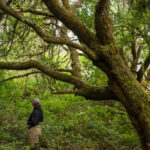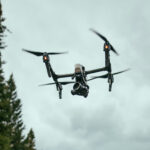One year after the world’s first recorded Covid-19 case, the long pandemic endgame seems to have begun. An experimental vaccine developed by Moderna appears to be highly effective against the virus, the biotechnology company announced Monday, outstripping many experts’ expectations. Pfizer and BioNTech, which last week announced similarly promising results for their own vaccine, said they would submit a request on Friday for emergency use authorization from the Food and Drug Administration.
While the trial data has not yet been peer reviewed and distributing a vaccine poses considerable hurdles, many experts are optimistic, as are company affiliates. “We should now have two vaccines that could effectively end the U.S. epidemic next year if everything goes right,” Scott Gottlieb, a former FDA commissioner and current Pfizer board member, wrote on Twitter.
But the promising news came amid rampant spread of Covid-19 across the U.S. The swift vaccine development has showcased the scientific prowess of U.S. labs, even as the country has failed to implement a coordinated public health response to a pandemic that has so far killed more than 250,000.
As of Thursday, nearly 80,700 people in the U.S. were hospitalized with Covid-19, according to data from the Covid Tracking Project. Across the country, overwhelmed hospitals are desperately trying to find space for patients, with around one-fifth face staffing shortages, according to government data obtained by The Atlantic.
The more than 2,600 local and state public health departments that manage the front line of the country’s Covid-19 response have raced to keep up with the strain, sometimes while dealing with conspiracy-theory-fueled opposition, as well as with flip-flopping and conflicting imperatives from political leaders. In New York City this week, public schools closed, cutting off thousands of children from vital services, while bars and restaurants, which experts say pose a far greater risk than schools, remain open for indoor dining. (The city’s mayor has said that will likely change soon.)
With the Thanksgiving holiday approaching, the Centers for Disease Control and Prevention urged people “to celebrate at home with the people you live with.” And in Germany, where cases are also rising, the government found a creative way to ask people to stay put during the winter ahead. A joking new ad campaign, set in the future, depicts an older man relating his heroism during the Covid-19 days. “We mustered all of our courage and did what was expected of us,” he says, backed by dramatic string music. “The only right thing. We did nothing. Absolutely nothing.”
Also in the News:
• In response to the Covid-19 crisis, more people are enrolling in U.S. public health programs. For the upcoming school year, around 40,000 people have applied for master’s programs in public health that use the common application, an increase of 20 percent. This rise comes despite longstanding challenges that plague the field, including underfunding, job cuts, and low wages. Some of the incoming students see public health as a way to do vital and meaningful work, including Kelsie Campbell, who will begin studying for a master’s in public health at Florida International University next year. “There’s power in having people from your community in high places, somebody to fight for you, somebody to be your voice,” Campbell, who is Jamaican and British, told The Associated Press. Newly minted public health workers will continue to be needed long after the pandemic. Forty-two percent of public health workers are over 50 and many plan to retire soon. Still others have been pushed out of jobs during the pandemic. According to ongoing reporting from the AP and Kaiser Health News, more than 100 public health leaders have left their posts since April. (The Associated Press and Kaiser Health News)
• Scientists called this week for the retraction of a paper claiming to associate the mentorship of junior female researchers by senior female researchers with a decline in both parties’ careers. In the study, published Tuesday in the journal Nature Communications, researchers from New York University Abu Dhabi analyzed a massive dataset of academic papers and identified 3 million “mentor–protégé pairs” — defined as a pair of researchers who co-author a paper when one is in the first seven years of their career, and the other has been a researcher for more than seven years. The authors measured the “benefit” of these pairs by analyzing the number of citations the co-authored papers received and the citations received by papers authored by the junior researchers later in their careers. According to the analysis, “protégés who remain in academia reap more benefits when mentored by males rather than equally-impactful females.” Outside researchers quickly took to Twitter to describe major flaws in the study’s methodology. Critics argued the paper conflated co-authorship with mentorship; that citations numbers were the only metric used to define career success; that a web-based program called Genderize.io was used to link researcher names to a male-female binary, erasing other identities; and that the authors did nothing to acknowledge the institutional barriers that continue to affect the careers of women and gender minorities. “It is your ethical duty to retract this paper,” wrote Leslie B. Vosshall, a professor of neurogenetics and behavior at The Rockefeller University, in an open letter to Elisa De Ranieri, the editor in chief of Nature Communications. On Thursday afternoon, the journal’s editors said in a statement that they are looking into the issue. (Nature Communications)
• When the Arecibo Radio Observatory picked up its first whispers from the cosmos, the Beatles had recently released their first album and the U.S. was still years away from putting an astronaut on the moon. More than half a century later, the famous telescope, an iconic landmark in Puerto Rico, is meeting its end. In a news conference on Thursday, the National Science Foundation announced that it will decommission the telescope, which in recent months saw two of its suspension cables snap, imperiling a 900-ton instrument platform perched 500 feet above the main dish. Officials said there was no way to repair the damage without putting workers and other nearby facilities at risk. Arecibo, until 2016 the world’s largest single-aperture telescope, was a touchstone of the Puerto Rican science community, beloved by astrophysicists. Built in the hollow of a natural sinkhole, the telescope’s imposing dish — more than three football fields wide — had been featured in Hollywood films such as “GoldenEye” and “Contact.” Over the next few weeks, engineering firms will develop a plan to dismantle the telescope. (Science)
• The Donald J. Trump administration moved this week to expedite oil and gas leases in the famed Arctic National Wildlife Refuge in Alaska, which at almost 20 million acres is the largest such refuge in the country. Since its creation in 1960, the refuge has been considered one of the country’s premier conservation areas, but the current administration has long sought to drill there, building on similar efforts by the George W. Bush administration in the 2000s. The administration announced the rushed plan after President Trump lost the national election in early November. With the publication of a “call for nominations” in the Federal Register Tuesday, the process starts by seeking comments from companies on their plans to lease in the refuge. By law, the comment period must stay open until Dec. 17, and a sale can be set 30 days later. But the move may bring complications. The earliest sale date would be just a couple of days before President-elect Joe Biden’s inauguration, and Biden has indicated he will not continue the process. And environmental groups have already filed lawsuits to block such actions. The drilling move is not the only conservation management decision the Trump administration is pushing during this lame duck period. Another set of new rules, announced this week, is expected to allow more logging and road building in the national forests. (NPR)
• And finally: After U.S. biotechnology firm Moderna announced that its Covid-19 vaccine had shown near 95 percent effectiveness in trials, sharp-eyed observers noted that the vaccine research had received support from country music icon Dolly Parton. In April, the Tennessee star donated $1 million to coronavirus research after her friend Naji Abumrad, a physician and researcher, told her that scientists were making exciting advances toward developing cures for the virus. Abumrad works for the Vanderbilt Institute for Infection, Immunology, and Inflammation at Vanderbilt University, which took part in the study of Moderna’s vaccine, and which was the recipient of Parton’s donation. Parton became friends with Abumrad after she was treated at Vanderbilt following a car accident in 2014. “I felt so proud to have been part of that little seed money that hopefully will grow into something great and help to heal this world — Lord knows we need it!” Parton said in an interview on BBC’s The One Show. (The Guardian)
“Also in the News” items are compiled and written by Undark staff. Deborah Blum, Brooke Borel, Lucas Haugen, Frankie Schembri, and Ashley Smart contributed to this roundup.










